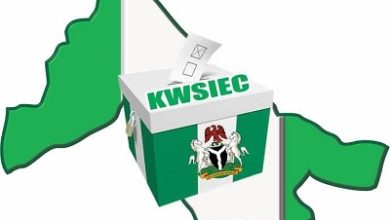Electoral Act and Buhari’s no-show

At the last count, President Muhammadu Buhari has rejected or withheld assent to the electoral bill 2018 (as amended) for the fourth time. He cited a few discrepancies for his action. Chief among them being the closeness of the election which is due in February to the time the bill was ready. At the various points that the bill was rejected, drafting errors, misspellings, order of elections, electronic accreditation, electronic transmission of results, announce and not counted and announcement of results, etc have formed reasons to thwart the continuous improvement in our electoral process.
For example, the report of the conference committee on the new version of the Act was passed on June 7, 2018 before the lawmakers proceeded on the three weeks Sallah break. “It has been transmitted to the President for assent so that the new law can be used in the forthcoming 2019 general elections,” reports quoted legislative sources as saying back then. Therefore, the rejection of the previous bill led to the establishment of the Parliamentary Support Group, PSG, a pro-Buhari group at the National Assembly. One of the contentious issues in the rejected bill was the change in election sequence.
As a result, the Deputy Senate President, Ike Ekweremadu, had while speaking during the passage of the bill on June 7 this year said the controversial clauses in the bill had been removed from the new version. “Let me quickly make some quick clarifications. One is that when we passed the Electoral Act earlier in the year, the President returned it with observations. From the report we have here, it means that those areas appear to be controversial or where the president had some issues.
“No matter how we feel, whether we like it or not, whether we believe in what he said or not, that is not the issue now. What is important now is how to save the other provisions (clauses), our committee resolved to remove those aspects. They may come up maybe some other time but for now, they are not part of this process. That has been removed to make the rest non-controversial,” he said.
Buhari had in his letter rejecting the previous bill said: “The amendment to the sequence of elections in Section 25 of the principal Act, may infringe upon the constitutionally guaranteed discretion of the Independent National Electoral Commission (INEC) to organise, undertake and supervise elections provided in Section 15(A) of the third statue to the Constitution;
“The amend to Section 138 of the principal act to delete two crucial grounds upon which an election may be challenged by candidates, unduly limits the rights of candidates in elections to a free and fair electoral review process;
“The amendment to Section 152 Subsection 325 of the Principal Act may raise Constitutional issues over the competence of the National Assembly to legislate over local government elections.”
Chairman of the Senate committee on INEC, Senator Suleiman Nazif, had while presenting the report explained they deleted Sections 25 and 152 (3)-(5) in the proposed Bill based on the President’s observations. The sections dwelt on the controversial election sequence. He said they retained Section 138 (c) and (d) as contained in the Principal Act. “Further amend Section 49 by including a new subsection (3) which provides that “ Where a Smart Card Reader deployed for accreditation of voters fails to function in any unit and a new card reader is not deployed, the election in that unit shall be cancelled and another election shall be scheduled within 24 hours”; and
“Amend Section 140 to include a new subsection (c) which states that “Where the election is postponed due to omission of a political party’s name or logo, the Commission’s Officer responsible for such printing of party names or logos commits an offence and is liable to a fine of Two Million Naira (N2, 000,000) or imprisonment for 2 years or both,” he said.
“The bill is undergoing standard operational procedure and the time of the President has just begun. The most important thing is that the National Assembly has transmitted it to the President through me. It has left the National Assembly,” he said.
Events have since over took the above scenario. The president still found loopholes in that version and it was returned. National Assembly went ahead and made corrections leading to the transmission of the fresh bill which everyone thought will satisfy the president for the needed assent. It didn’t happen for reasons pointed out at the beginning of this piece. Now it appears the bill has entered a cul de sac. But it can still be salvaged. The National Assembly should mobilise its members to override the president. It’s constitutional. His rejection of the bill is not the end of the world. it is not a helpless situation.





